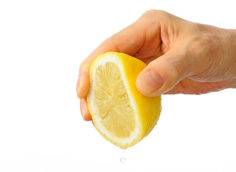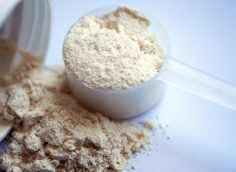Anyone can change their body by doing the right things consistently. And you'll automatically do the right things by avoiding the biggest diet problems. Here are the top three rookie nutrition mistakes.
Diet Problem 1: Not Knowing Your Numbers
The first place to start when trying to lean out or build muscle is to calculate your total daily energy expenditure (TDEE). Your TDEE is basically how many calories your body needs to maintain your current body weight, given your current body composition and activity level.
Without knowing yours, there's no way to accurately track whether you're eating in a caloric deficit, surplus, or maintenance. You'll never know where you're going if you don't even know where you are. (Try this calorie calculator to get started.)
Diet Problem 2: Not Eating Enough Protein
Protein is by far the most important macronutrient, but it's often the most under-consumed. Adequate protein helps build and repair damaged muscles and is also paramount to maintain existing muscle.
If your goal is weight loss, aim to eat a minimum of one gram of protein per pound of body weight. You may even get even better results if you consume a bit more (1.1 to 1.5 grams of protein per pound) as long as you remain in a caloric deficit.
An important caveat here is if you're overweight or have more than 25% body fat. In that case, consume a gram of protein per pound of lean body mass (LBM). So if you're a 300-pound male who's 40% body fat, you'd need to do a little math to figure out approximate LBM. Just multiply 300 by .60, which will give you 180 pounds of lean body mass. In this case, you'd consume 180 grams of protein.
Another caveat: If you're trying to gain weight and build muscle, you'd only need to eat 0.75 grams of protein per pound of body weight. Science has shown this amount of protein is enough to build muscle as long as you're getting adequate carbohydrates. Your carbs should be around 50% of your daily calories while you eat in a caloric surplus.
Diet Problem 3: Not Understanding Your Relationship With Food
Food is very personal to all of us. No one diet works for all people, which is why I never advocate specific diets, but rather specific principles.
A good rule of thumb? If it didn't exist 100 years ago, then don't eat it. Avoid refined carbs and vegetable or seed oils. And rather than eating on impulse, take a moment and think about your food. Ask yourself these three questions:
- Why am I eating this?
- What's this going to do for my body?
- Is this meal helping or hurting me?
When you eat more for purpose and less for pleasure, your entire perspective on food changes.



